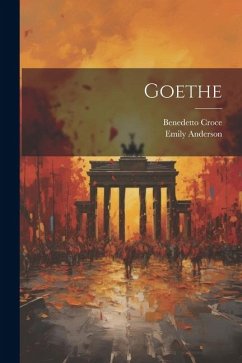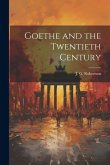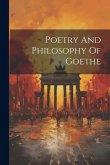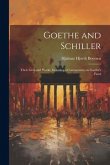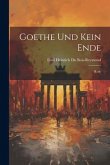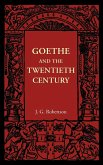Andere Kunden interessierten sich auch für
Produktdetails
- Verlag: Creative Media Partners, LLC
- Seitenzahl: 242
- Erscheinungstermin: 18. Juli 2023
- Englisch
- Abmessung: 234mm x 156mm x 13mm
- Gewicht: 345g
- ISBN-13: 9781021459848
- ISBN-10: 1021459844
- Artikelnr.: 68816980
Hinweis: Dieser Artikel kann nur an eine deutsche Lieferadresse ausgeliefert werden.
- Libri GmbH
- Europaallee 1
- 36244 Bad Hersfeld
- gpsr@libri.de
Benedetto Croce was an Italian philosopher, historian, and politician born on February 25, 1866, in Pescasseroli, Italy. Renowned for his work in philosophy, historiography, and aesthetics, Croce was a key figure in the development of idealism and made significant contributions to the philosophy of history. He believed that historical knowledge is shaped by contemporary thought and that history is not merely the recounting of past events but an ongoing process of interpretation. Croce's political views were rooted in liberalism, and he formulated a distinction between liberalism and "liberism," emphasizing individual liberty and democratic values. His works span various fields, influencing both intellectual thought and political discourse in Italy and beyond. Croce was influenced by figures such as Giovanni Gentile and Karl Marx, though he diverged in his approach to philosophy and politics. He had a notable family life, being married to Adele Rossi in 1914 and fathering several children, including Lidia Croce and Alda Croce. Croce passed away on November 20, 1952, in Naples, Italy, leaving behind a legacy as a prominent philosopher and historian who shaped 20th-century thought.
1. Moral and Intellectual Life 2. Poetical and Artistic Life 3. Werther 4.
Wagner the Pedant 5. The First Part of 'Faust I' 6. The Second Part of
'Faust I'. The Tragedy of Gretchen 7. The Systematic form of 'Faust I' and
the Double form of 'Wilhelm Meister' 8. Fragments and Hymns 9. Historical
and Ethical Dramas 10. Helena 11. 'Hermann und Dorothea' 12. Lyrics 13. The
'Wahlverwandtschaften' 14. The 'Wanderjahre' 15. 'Faust II' 16. Conclusion
1. Moral and Intellectual Life 2. Poetical and Artistic Life 3. Werther 4.
Wagner the Pedant 5. The First Part of 'Faust I' 6. The Second Part of
'Faust I'. The Tragedy of Gretchen 7. The Systematic form of 'Faust I' and
the Double form of 'Wilhelm Meister' 8. Fragments and Hymns 9. Historical
and Ethical Dramas 10. Helena 11. 'Hermann und Dorothea' 12. Lyrics 13. The
'Wahlverwandtschaften' 14. The 'Wanderjahre' 15. 'Faust II' 16. Conclusion

